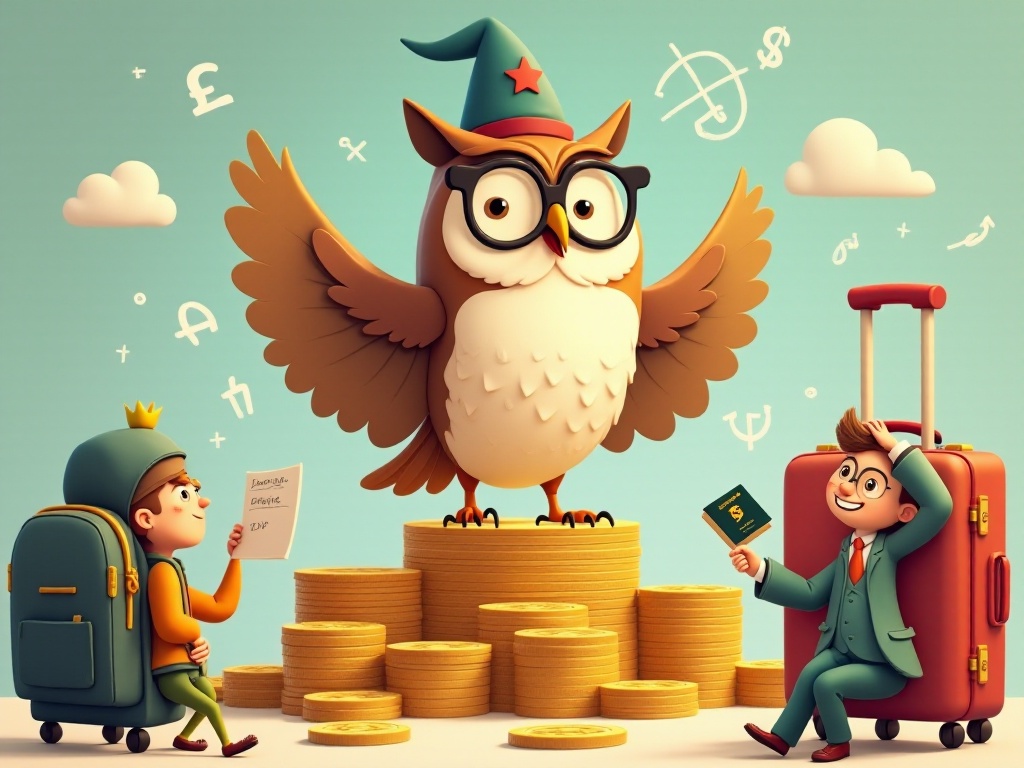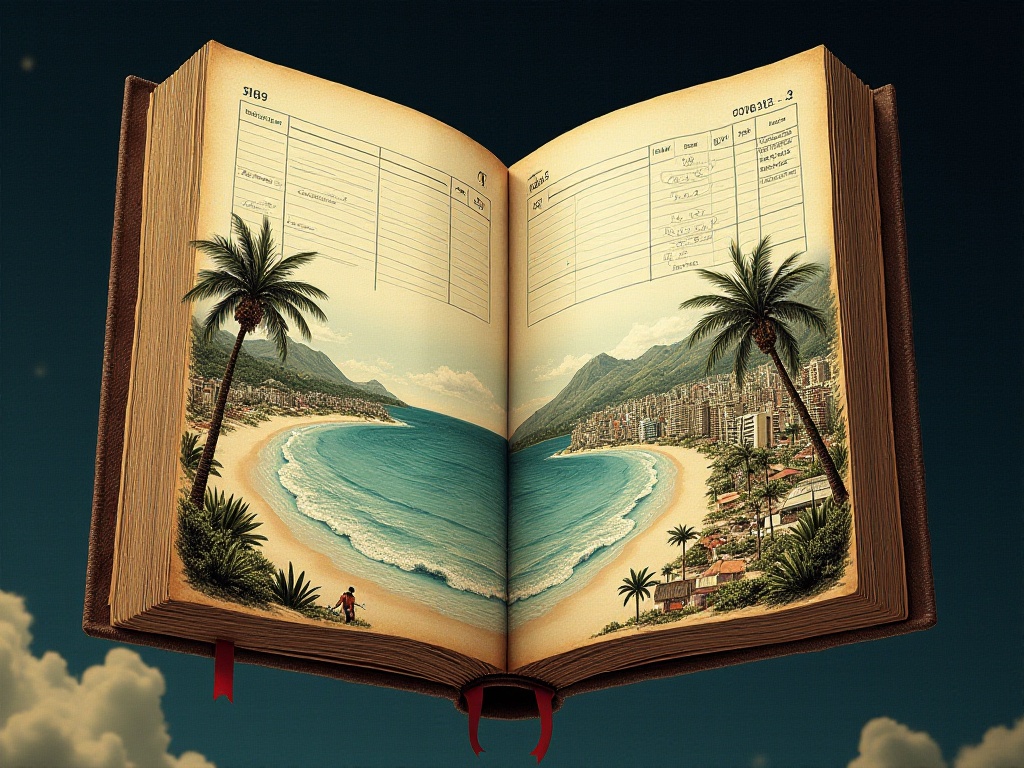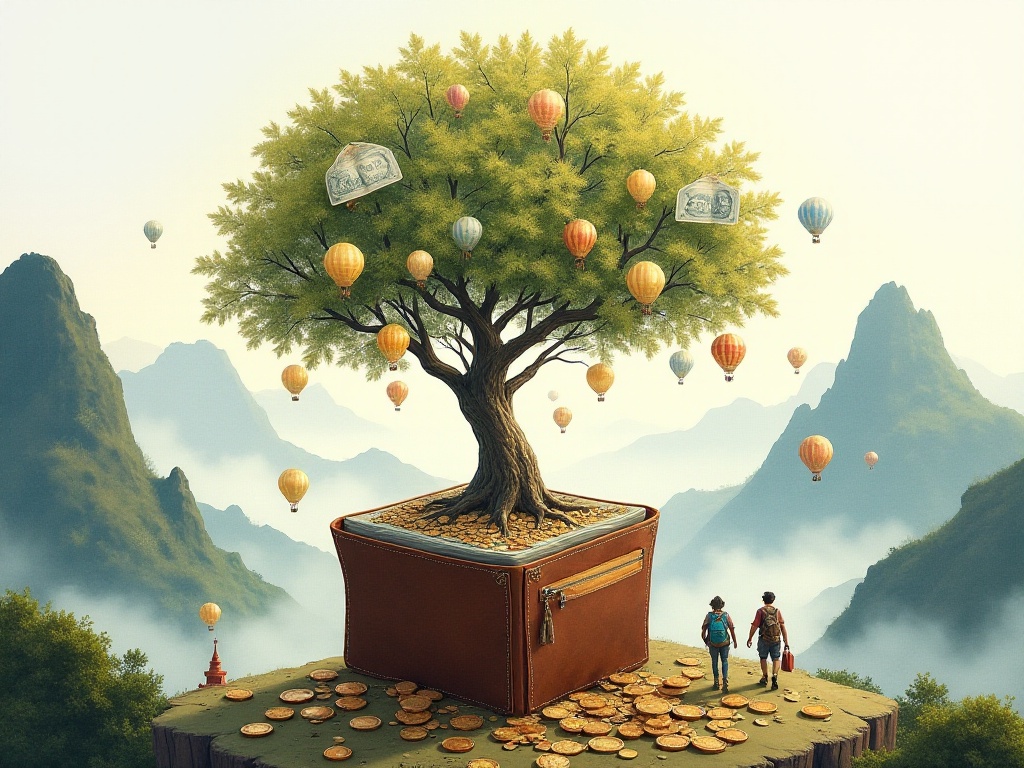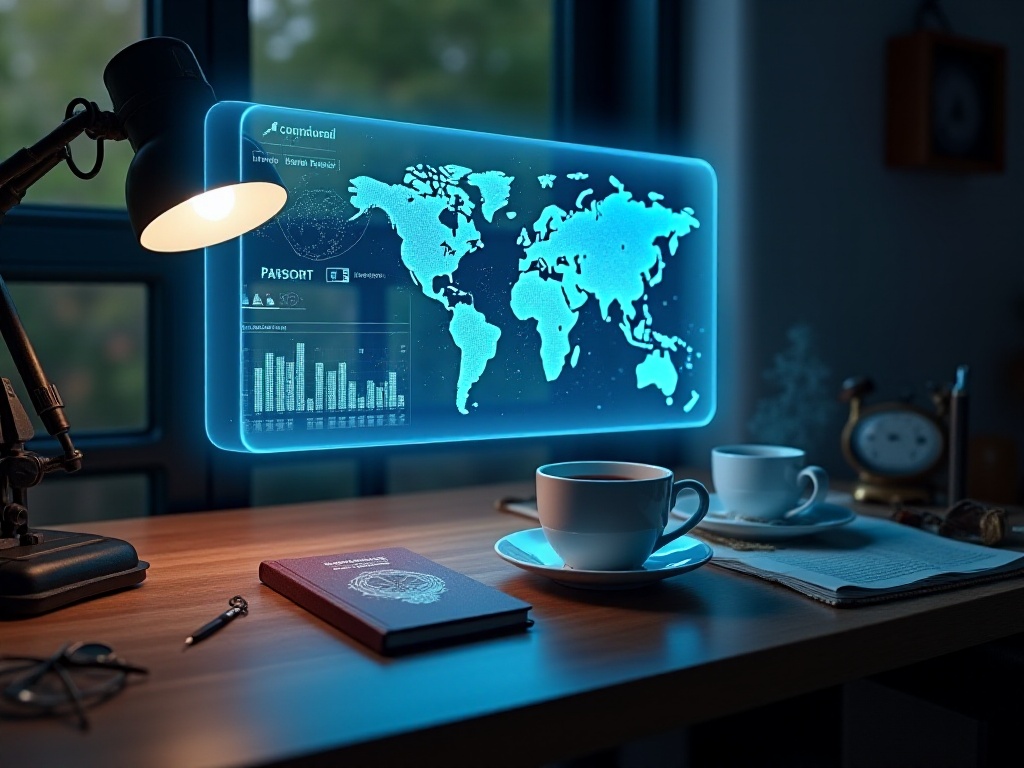Introduction
Every time I see travel photos in my social circle, I feel envious, but when I think about my bank balance, I can't help but sigh. As a travel blogger who has traversed China and the world, I deeply understand that good travel isn't just about having money, nor is budget travel necessarily low-quality. The key is learning to calculate carefully and spend every penny wisely.
First Budget Experience
My first solo international travel experience remains vivid in my memory. Young and confident then, I thought I could conquer the world with just a credit card. But upon arriving in Bangkok, I was dazzled by various shopping malls, night markets, and delicious food. Of my planned 8,000 yuan budget, I spent 6,000 in just three days. I had to painfully cancel my trips to Pattaya and Phuket, and return home early with my tail between my legs.
This experience taught me an important life lesson: travel without proper planning is a waste of money and time. Think about it - if I had planned my budget properly then, I might have experienced the blue seas and skies of southern Thailand, instead of just staring enviously at others' beautiful photos on my phone.

Getting Started
Many friends ask me: "How much budget is enough?" My answer is always: it depends on your actual situation. Don't feel pressured by travel bloggers online showing budgets of tens of thousands - there's no need to follow their lead.
Take myself for example, when I first started working, my salary was only seven to eight thousand. After rent, utilities, and daily expenses, I could only save two to three thousand monthly. But I really wanted to see cherry blossoms in Japan, so I started saving from the beginning of the year. I ate at the cafeteria instead of ordering takeout for lunch; stayed home watching shows instead of going to movies on weekends; and resisted shopping during sales events. After persisting for 4 months, I finally saved 12,000 yuan.
To plan a budget well, first understand your financial situation. I suggest taking out your phone, opening your payment records for the last three months, and carefully calculating your monthly income and expenses. Fixed expenses include necessities like rent, utilities, phone bills, and internet fees; flexible expenses include items that can be reduced like dining, shopping, and entertainment. After calculating these, you'll know how much you can actually save for travel each month.

Budget Categories
Pre-departure Investment
Many people only think about destination costs when planning travel budgets, overlooking various pre-departure expenses. These initial investments might seem costly, but they're worth it.
Take visas for example - although many countries now offer visa-on-arrival, getting a visa in advance is still most reliable. For instance, a Japanese tourist visa costs around 220 yuan, but don't forget about preparing materials like employment certificates and bank statements. If time is tight, using an agency might cost an additional 500-1,000 yuan.
As for equipment, while you don't need to buy new items for every trip, some basic gear is necessary. I bought my first hiking backpack during the 618 sale, reduced from 799 to 399 yuan. Though not a top brand, it has served me well through three years of travel. So I suggest investing appropriately in equipment - buying something good can last a long time.
Small items like sunscreen, medicines, and power adapters add up to significant expenses. Last year, I spent about 600 yuan preparing these items before going to Southeast Asia. These things might be more expensive locally, and you might not find suitable ones.

Travel Expenses
Accommodation, Food, and Transportation
Regarding accommodation, there are so many choices now. Taking my Seoul trip last year as an example, hostels near Myeongdong cost about 100-150 yuan per night, regular business hotels 300-500 yuan, and better hotels at least 700 yuan. But opportunities come to those who prepare - I grabbed a special deal on a booking site, getting a 4-star hotel for just 498 yuan per night, including breakfast for two.
Many people think they should save on accommodation, but I want to say that lodging really affects your travel experience. Once, to save money, I stayed in a 50-yuan-per-night hostel in Bangkok, but the room was damp and stuffy, and the air conditioning kept breaking down, making it impossible to sleep well. I later concluded that allocating 30-40% of your total budget to accommodation is reasonable.
For transportation, besides round-trip flights, you need to research local transportation costs. For example, in Tokyo, a PASMO card allows transfers between subway and JR lines - though it requires a 500-yen deposit, it's much cheaper than buying individual tickets. In Bali, renting a motorbike costs only 50-60 yuan per day, much cheaper than taxis and offering more freedom.
Regarding food, this tests one's self-control the most. I suggest choosing accommodation with breakfast included, so at least one meal is covered daily. For lunch, go to local restaurants - they're both economical and authentic. For dinner, you can splurge on 1-2 meals at trending or Michelin-starred restaurants, keeping other meals casual.
Experience Costs
This part is most easily underestimated. I remember my first trip to Chiang Mai - I spent quite a bit just on experiences: Thai massage 200 yuan/session, cooking class 350 yuan, night safari entrance 180 yuan, Doi Suthep temple entrance 40 yuan... These experiences make travel unique - if you only focus on saving money without experiencing anything, you might as well stay home watching videos.
Now I search various apps for destination experiences beforehand, list interesting ones, calculate total costs, then select the most desired ones based on budget and time. Sometimes you might catch special deals or group purchases.
Smart Financial Management

Tracking Tools
I've tried many expense tracking apps but found a simple spreadsheet works best. I now use a self-made Excel spreadsheet with several sheets:
First sheet is overall budget planning, listing all expected expenses; Second sheet is daily records, including specific expenses and purchases; Third sheet tracks budget execution, showing which items are over budget and which have surplus.
Most important is maintaining records. Every night before bed, I spend a few minutes recording the day's expenses. This helps catch overspending promptly and provides reference for future trips.

Emergency Plans
Life on the road has its risks. Unexpected expenses can occur during travel. When I had a motorbike accident in Vietnam, though I wasn't seriously injured, medical and repair costs totaled nearly 2,000 yuan. Fortunately, I had emergency funds, or I would have had to ask family for money.
So I strongly recommend keeping 10-15% as emergency funds. This should preferably be in cash, as cards might not work everywhere. If unused, it can become shopping money at the end.
Money-Saving Tips
About saving money, I have several unique tricks to share:
For flights, if your schedule is flexible, use flight comparison apps to set price alerts. I bought my Japan flight last year this way, saving over 800 yuan. Red-eye flights, though tiring, are very economical, sometimes half the regular price.
For accommodation, follow booking platforms' promotions. Many platforms have membership point programs - the more you book, the higher your membership level and better the discounts. I'm now a gold member on one booking site, getting 10% off most bookings.
Having a reliable credit card is important. My credit card is specifically designed for travel, offering free airport transfers, lounge access, travel insurance, and importantly, points redeemable for flights. Last year I redeemed points for a one-way ticket to Thailand.
For attraction tickets, many cities offer passes or tourist cards, cheaper than buying individual tickets. For example, Osaka's Amazing Pass allows unlimited access to most popular attractions within a timeframe, much cheaper than buying separately.
For dining, follow local discount information. Many Japanese restaurants offer business lunch sets at half the dinner price. Korean restaurants often have "2-person" or "4-person" set meal deals.
Shopping also requires strategy. In Japan, many stores offer tax-free shopping above certain amounts. You can combine purchases with companions to qualify for tax exemption.
Final Words
After all this, the most important thing about budget planning is making it work for you. Don't think you can't travel because of a small budget, nor spend carelessly because you have money. Proper planning can make your travel both economical and enjoyable.
Everyone's travel style is unique - the key is finding what suits you best. Maybe you prefer hostels to meet friends from around the world, or maybe you enjoy high-end hotel services - there's no right or wrong. What's important is making every penny count.


